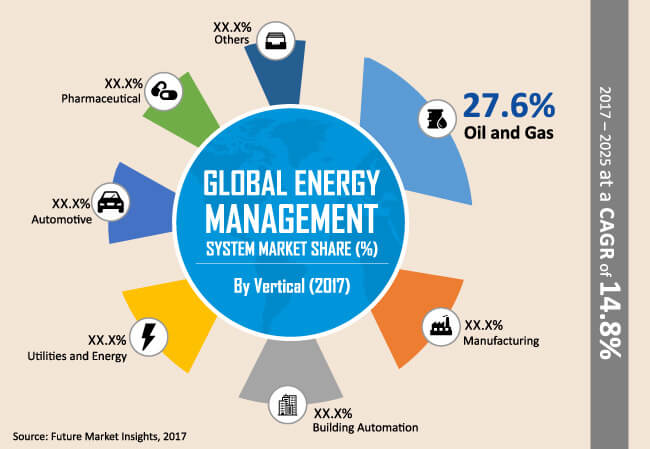
According to the latest report published by Future Market Insights (FMI), the global energy management system (EMS) market, which is currently valued at US$ 6,340 Mn is projected to reach US$ 21,626.6 Mn by 2025-end. In terms of revenue, the market is expected to reflect 14.8% CAGR between 2017 and 2025. The report also cites that the increasing demand for energy management solutions to reduce energy consumption coupled with the growing pressure to adopt sustainable energy solutions in industrial and commercial sectors is majorly supporting the growth of global energy management system market. Moreover, factors such as augmented energy prices, new regulatory guidelines related to energy management and growing concerns over environmental sustainability are fueling the demand for energy management systems worldwide.
Request a Sample Report with Table of Contents: http://www.futuremarketinsights.com/reports/sample/rep-gb-3903
Global Energy Management System (EMS) Market: Research Highlights
- Owing to its technological superiority, preference for cloud-based EMS deployment is expected to grow higher as compared to on-premise EMS deployment over the forecast period.
- In 2016, deployments of EMS in oil & gas industry itself accounted for more than 27% revenue share of the global market. Use of EMS in the oil & gas industry is expected to remain robust in 2017 and beyond.
- Meanwhile, demand for EMS has grown exponentially in the building automation sector. Towards the end of forecast period, the sector is expected to account for a sizeable contribution to the growth of global EMS market.
Amongst all the regions, the energy management market in Asia-Pacific is projected to witness a higher growth rate as compared to other markets, reflecting as CAGR of 17.2% during the forecast period. The region embraces some of the fastest emerging economies in the world, which include India and China, along with developed economies such as Japan, Australia, and South Korea. Further, Asia Pacific holds the top position in the world when it comes to volume consumption of energy, which is expected to increase even higher over the next couple of years. North America and Europe are the other two regions with great significance to the global market. In terms of revenue, both the regions collectively accounted for more than 60% share of the global market in 2016. In addition, the market in North America was valued at US$ 2,428.2 Mn in 2015 and accounted for 38.3 % of the global market revenue share. Also, the region is likely to remain dominant over 2025, capturing a revenue share of 33.6% of the overall market.
For More Details, Ask Analyst @ https://www.futuremarketinsights.com/ask-question/rep-gb-3903
The report analyses the trends driving each segment and offers analysis and insights regarding the potential of the energy management system market in regions including North America, Latin America, Europe, Asia Pacific, and Middle East and Africa. Among these regions, North America accounted a large share of 38.3% in the global energy management system market in 2016. Asia Pacific is expected to have a high CAGR of 17.2% during the forecast period.
Examples of some of the key competitors in the energy management system market are
- International Business Machines Corporation,
- C.A Technologies,
- Schneider Electric SE,
- Eaton Corporation PLC,
- Cisco Systems, Inc.,
- Siemens AG,
- Honeywell International, Inc.,
- Asea Brown Boveri (ABB) Ltd.,
- General Electric Company,
- Emerson Electric Co.
Buy Now Report Here@ https://www.futuremarketinsights.com/checkout/3903
Continuous increase in regulatory obligations and industry guidelines one of the major driver
- All the resource-intensive industries utilize significant amount of raw materials, water and energy resources, thus leading to a large amount of solid waste, effluents, and emissions. These industries are often subject to numerous global and local regulations, along with several plant level geography compliance.
- In order to comply with these stringent regulations, enterprises are adopting energy management solutions and are employing various methodologies, such as product lifecycle assessments, carbon & energy footprint analysis, and devising processes to ensure a sustainable and eco-friendly supply chain, to cater to these requirements.
- With environmental and energy sustainability becoming a global concern, there is an upsurge in the number of investors, customers, and suppliers who consider energy management system as a key factor in taking decisions about their relationship with manufacturers.
- Therefore, enterprises are engaging in developing sustainability goals, and are investing significantly into energy management solutions, to strengthen their brand value and reputation.
- Moreover, these enterprises try to avoid failing to resonate with what their major stakeholders feel is important, as this will adversely impact their brands and ultimately the business.

